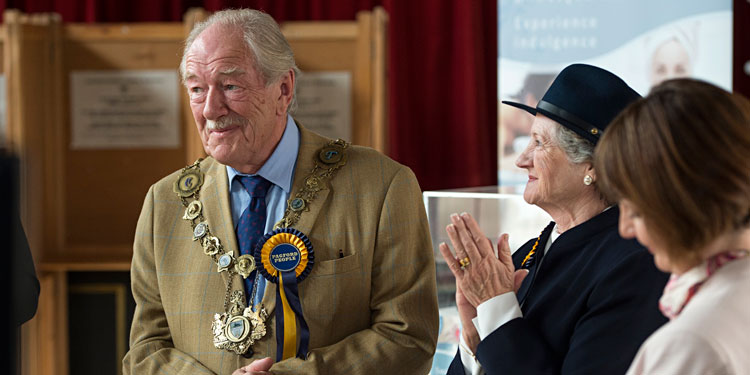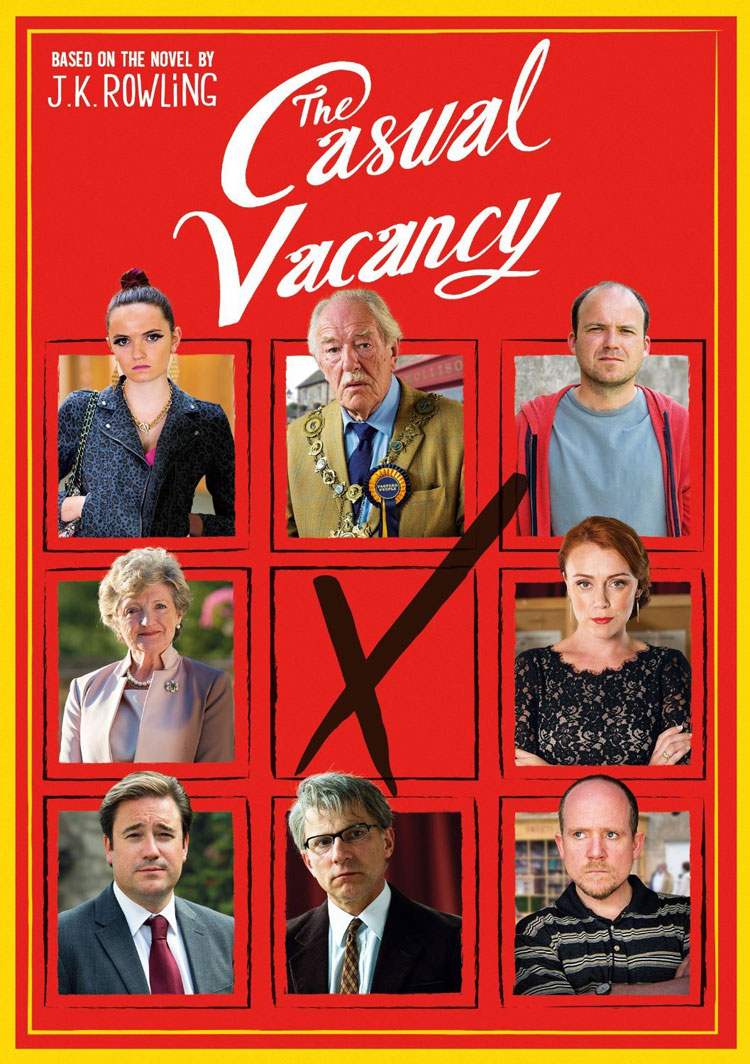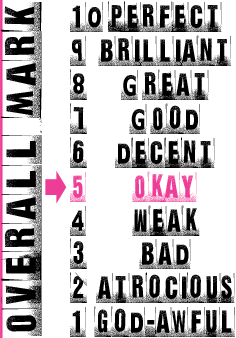
Director: Jonny Campbell
Running Time: 180 mins
Certificate: 15
Release Date: JUne 15th 2015 (UK)

Considering it’s based on a book by JK Rowling and was high profile enough for the BBC to make it in co-operation with HBO, The Casual Vacancy wasn’t given as massive a push when it aired on TV as you might expect. That’s probably because despite being based on a novel by the Harry Potter author, it’s far more low key and adult than her earlier work.
Indeed, the main complaint about both the book and three-part TV series is that not a huge amount happens, and what does happen often appears, on the surface at least, to be of only marginal consequence. There is a point to most of it, but it takes a bit of work to figure out what that is.
At least the title announces that this is unlikely to be tale full of wizards and magic, as the titular Casual Vacancy is the space left on the Pagford Parish Council following the unexpected death of Barry Fairbrother (Rory Kinnear). Pagford is a typical middle class English village, which here includes quite a lot of people who’d prefer nobody poor or with social problems blot their picture perfect British idyll.
Barry was one of the key members of the Council who ensured a local methadone clinic and facility for the disadvantaged stayed open, serving the people of an extremely poverty stricken nearby estate. Led by the odious Howard and Mary Mollison (Michael Gambon and Julia McKenzie), other members of the council see Barry’s death as an opportunity to install a new member who will back them in having the place shut down, which leads to a bitter fight over who will be elected.
Elsewhere there are other repercussions, such as Barry’s brute of a brother thinking he can ride the sympathy wave onto the Council, as well as waves made when messages threating to release secrets are put out on the internet, signed by someone claiming to be Barry’s Ghost. However potentially the direst effect could be on a family from the estate, who have only just been hanging on for a long time, due to the mother’s drug problems, but thanks to Barry’s help just about stayed together. With him gone and social services treating them more like something to be processed than people, there’s a danger it could all fall apart.
It’s certainly a well-made show with plenty of good performances and some extremely good ideas, however it can’t overcome the fact that painfully little happens. It’s almost as if in trying to prove she didn’t have to rely on massive drama and magic, Rowling pulled back so far that the drama she did include isn’t sustained. It’s a series of small incidents that deliberately tries to avoid the melodrama that usually come with this sort of Middle England entertainment, with not a vast amount happening in-between. Even the wonderful potential of the messages from Barry’s Ghost proves far less consequential than it might have been, before petering out completely.
However, it’s not a complete failure, as there is a point to what it does, which is to try to look at modern British society in an admittedly simplistic and didactic way, by pitting the Daily Mail readers against The Guardian crowd in a small village. Its point of view is definitely more Guardian than Daily Mail, which isn’t too surprising from the left-leaning Rowling. Both book and TV show take great delight in puncturing the pomposity and hypocrisy of the Little Englanders, such as how the fat Howard is happy to pontificate about wasting money on druggies who ‘choose’ to be addicts, while ignoring the amount the NHS is spending on his weight related issues, despite the fact he refuses to lose weight.
It is these ideas and the social dissection that keep things afloat, and indeed The Casual Vacancy is far more interesting if you watch it all in one go rather than having to wait a week between instalments, as it’s easier to see how it all fits together, and how something that looked like it was filling time in Episode 1 has more relevance by the end of Episode 2. There is no doubt that a little more plot and a touch more dramatic impetus would have helped, especially because in order to give things a proper conclusion it suddenly leaps into a kind of metaphorical melodrama that doesn’t quite fit with what’s gone before, but that’s not really the show’s fault, as it’s merely been ported over from the novel.
Overall Verdict: It’s not brilliant, but neither was the book, and I’d be willing to bet if it weren’t for Rowling’s name, it would never have gotten a TV adaptation. They’ve certainly done their best with it while not straying too far from the source, but it’s mildly interesting rather than being full-on entertaining.
Reviewer: Tim Isaac





Leave a Reply (if comment does not appear immediately, it may have been held for moderation)